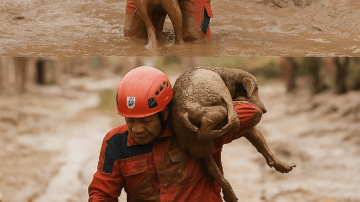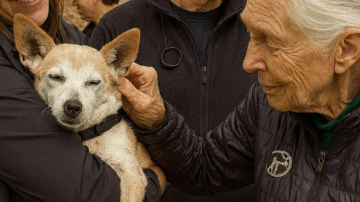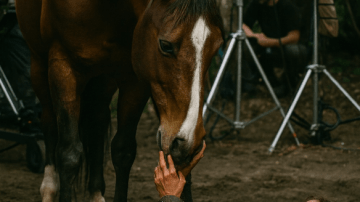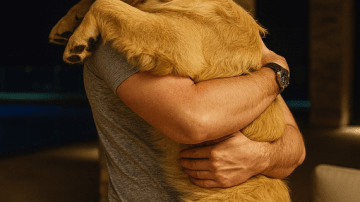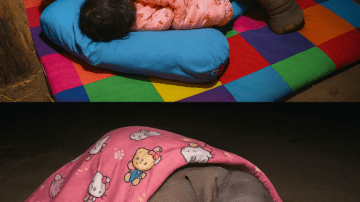There was once a tiny puppy named Globeta. She was found one day on the side of a busy street, her fragile body lying helplessly on the ground. Her belly was so swollen that she could not even turn around. Passersby walked quickly past, some glancing at her with pity, others ignoring her entirely, but fate had not abandoned her. A kind-hearted stranger noticed the little pup struggling to breathe and instantly understood that she needed urgent help. Without hesitation, the stranger lifted her carefully and rushed her to the nearest animal hospital.
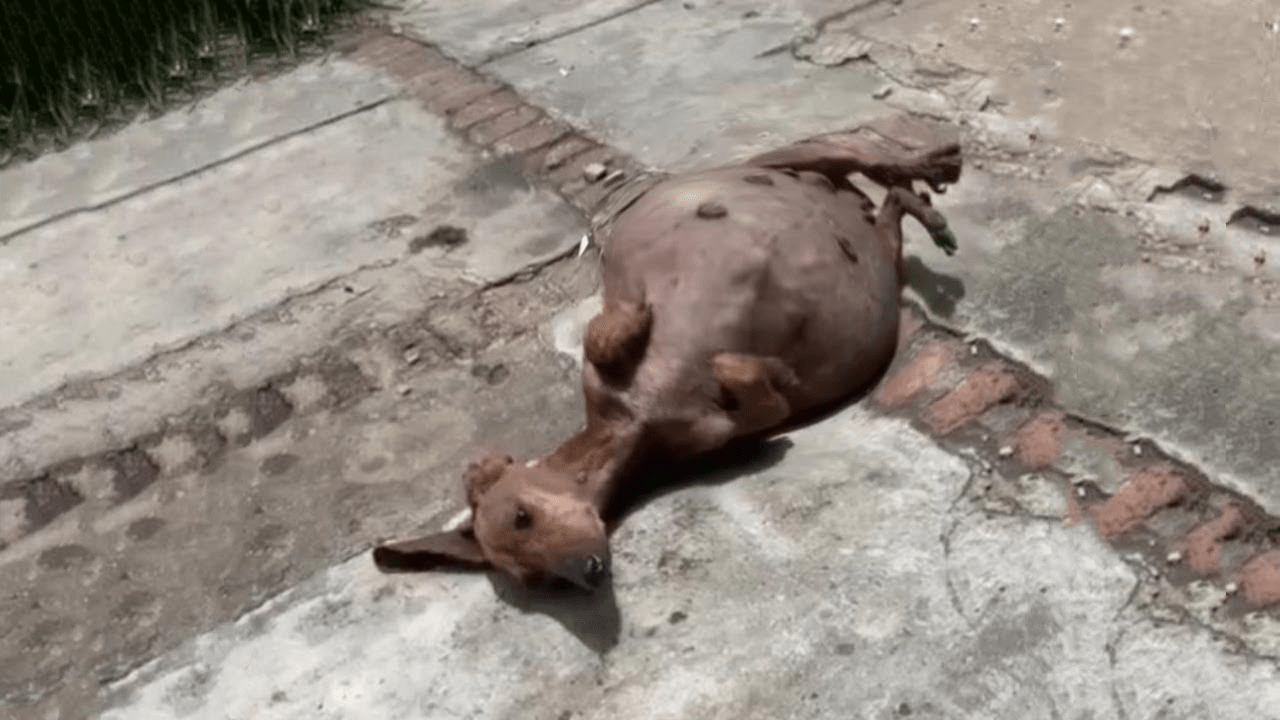
At the hospital, the veterinary team examined Globeta and discovered the severity of her condition. Her swollen belly was full of fluid, her body weak and trembling. She could barely raise her head. The vet explained that she would need a series of tests—blood work, blood chemistry analysis, an ultrasound, a distemper test, and more—to determine the cause of her suffering. Every minute mattered. Globeta was in critical shape and without immediate treatment she might not survive.
The stranger, though overwhelmed, agreed to everything the doctors suggested. They trusted that the veterinarians were her only chance. The vet explained one more step: they needed to puncture her belly and drain the fluid. It was a painful choice to make, but it was the only way to give her relief. With a nod of determination, the stranger gave their consent.
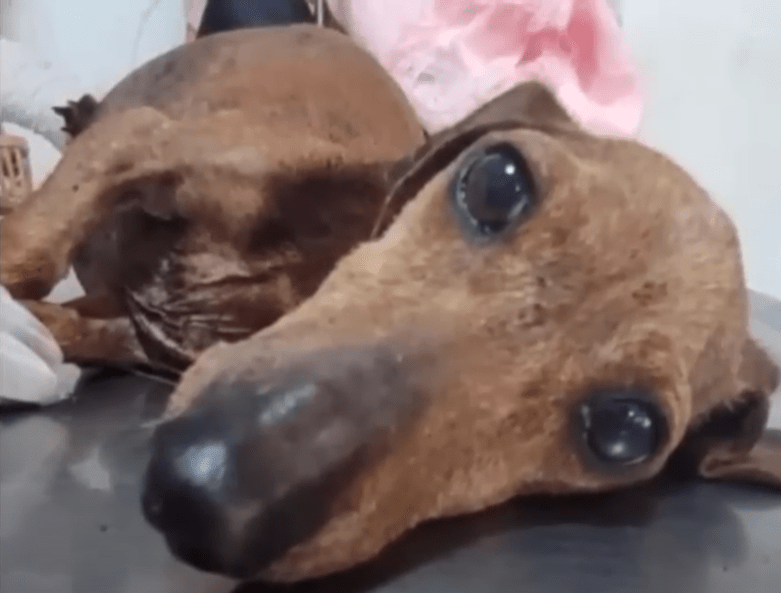
The procedure was performed carefully. Globeta endured it bravely, though she was so weak her small body barely resisted. Once the fluid was drained, she was placed on an IV drip and given medication to stabilize her fragile system. The medical team monitored her closely, watching every heartbeat, every breath, as though she were their own. Slowly, almost imperceptibly at first, Globeta began to improve. The stranger, waiting anxiously outside, was told that she had survived the procedure. A wave of relief washed over them—it was only the first battle, but Globeta had already proven she was a fighter.
The vet diagnosed her with severe edema, a condition caused by the abnormal accumulation of fluid in the body’s tissues. It was not just uncomfortable—it was life-threatening. But with proper treatment, Globeta’s condition could be managed, and she could have a chance at a healthy life.
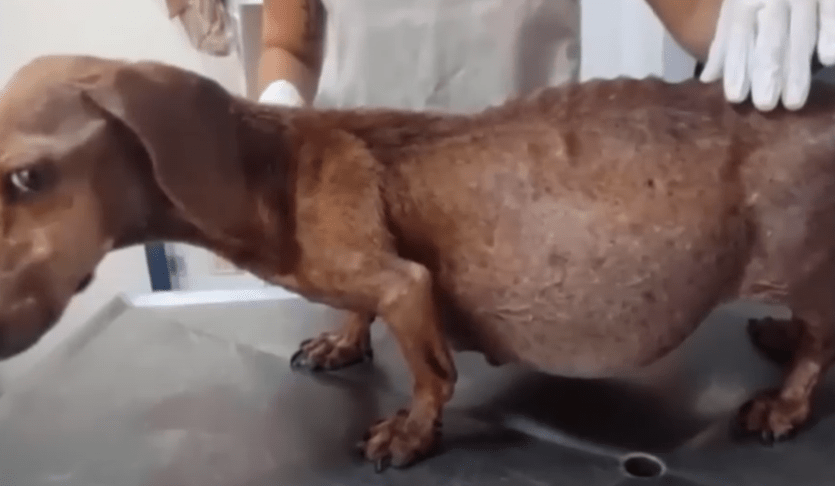
Over the next days, her recovery was gradual. At first she lay quietly, too weak to move. But little by little, she lifted her head, her eyes began to brighten, and her tail gave small, hesitant wags. By the end of the week, she managed to stand on her own paws, though shaky and uncertain. For the stranger who had found her, every tiny step forward felt like a miracle. They had not just saved a life—they were witnessing a transformation.
As her health improved, Globeta’s true personality began to emerge. She became playful, curious, and full of energy, a completely different dog from the one who had been lying helplessly on the street. She chased after toys, wagged her tail furiously when she saw familiar faces, and showered everyone with gratitude in the form of sloppy kisses. The stranger, who had once thought they were only offering temporary help, realized they had fallen completely in love with her. They could not imagine letting her go. And so they made the decision that would change both of their lives forever—they adopted Globeta.
In her new home, Globeta discovered what it meant to be safe and loved. She had warm meals every day, a soft bed to curl into, and a human who never left her side. She followed them everywhere, her trust so deep that it seemed as if she knew she had been given a second chance at life. The bond between them grew quickly, and soon they were inseparable.
Globeta’s story is more than a rescue. It is a reminder of how fragile life can be and how powerful compassion truly is. Without the kindness of a stranger, she might have been just another forgotten soul on the streets. But because someone cared enough to stop, to pick her up, to fight for her, she now lives a life filled with love and comfort.
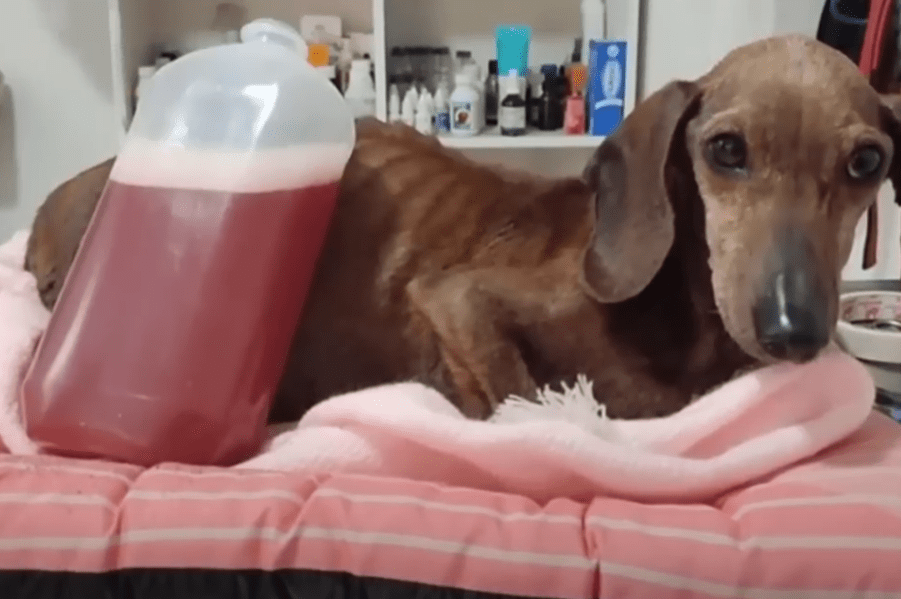
Her journey also highlights the importance of community and awareness. It takes more than one person to save lives like Globeta’s. It takes veterinarians willing to dedicate their skill, volunteers ready to step in, donors who make treatment possible, and storytellers who share these journeys to inspire others. Every act of kindness builds upon the next, and together they create miracles.
Today, Globeta runs and plays like any healthy puppy. Her swollen belly is gone, replaced by boundless energy and a zest for life. She is living proof that hope is never wasted, that even in the darkest moments, there can be light if someone chooses to care.
Her story reminds us that countless animals still wait silently in alleys, on streets, in fields—waiting for someone to notice them. Some will never be found. But others, like Globeta, only need one person to stop, one person to act, one person to care. And when that happens, destinies are rewritten.
So let Globeta’s second chance be a call to action. If you see an animal in distress, don’t look away. If you can’t help directly, reach out to those who can. Share their stories, spread awareness, and remember that kindness costs nothing but can mean everything. Globeta’s life was saved not by chance, but by choice—the choice of a stranger who refused to walk past suffering.
And now, when she curls into her bed at night, belly full, tail wagging, eyes finally peaceful, Globeta reminds us all of the simplest and most profound truth: love heals.

